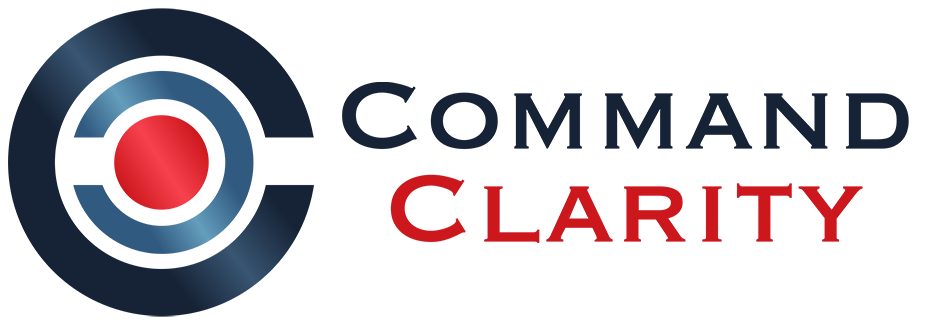We make small, seemingly trivial decisions daily: What do I wear to work? What should I eat for dinner? Do I have enough groceries at home, or should I order takeout?
On their own, none of these decisions are enormous or worth fretting over. However, when we total them up — over the course of the day, week, or month — these decisions can wear us down.
Psychologists estimate that the average adult makes 35,000 decisions each day. 35,000?? Sounds impossible, right? Think about your last trip to the coffee shop; even if you’re probably going to get an Americano, your brain will still consider the 70+ other options – and that’s before you decide to customize your drink order! Every notification we decide to address or ignore, every item on our “to-do list,” and each invitation to happy hour we accept or decline — those are decisions, and as you can see, they add up quickly! Whether or not we’re aware of it, we use a lot of valuable mental energy on seemingly menial choices. Instead of relying on ‘willpower,’ let’s dive into decision fatigue and how recognizing it can help with minor changes to habits and routines, allowing you to be at your best more often.
What Is Decision Fatigue?
First, let’s talk about why ‘willpower’ is in parentheses. Simple: ‘willpower’ doesn’t exist as we have come to know it. When we think of willpower, we might think of someone we know or want to emulate and their ability to grind through tough times or wonder how they always seem to make the right decision (forgoing dessert for fruit; passing on a spirit for a club soda, etc).
Here’s the truth about willpower:
- You have a finite amount of willpower that depletes as you use it.
- You use the same stock of willpower for all decisions.
To be clear, we use the same reserve of willpower to decide what shoes to wear in the morning as we do when choosing what snack to have after dinner. If our willpower is depleted from small decisions, it’s going to be much more difficult to pass on the cookie dough ice cream – regardless of our intention about eating sweets when the day began.
Making decisions drains energy whether we realize it or not. As we deplete our willpower reserve and tire from making decisions, the consequences become clearer: making choices takes longer, ideal results erode, and patience wears thin, which can produce the opposite of the intended outcome had more mental energy to allot.

Decision fatigue is a psychological phenomenon where an individual’s ability to make decisions and control their behavior deteriorates after making a considerable number of decisions. This mental exhaustion results from the cumulative impact of decision-making, leading to poorer quality choices, slower decision-making processes, increased stress, and a higher likelihood of impulsive or irrational decisions.
When you wake up in the morning, you are at your optimal decision-making capability. As the day passes, and decisions begin to pile on — at work, with family, and in your personal choices — your capacity for decision-making decreases.
If you continue to make decisions without restoring that lost energy, your decision-making abilities become slower and less reliable. By the end of the day, you might feel like you’re running on empty.
Recognizing decision fatigue is essential for making changes that help you be at your best more often. By acknowledging its existence, you can take steps to mitigate its effects and improve your overall well-being.
Building Mental Fortitude
Your mental capacity, emotional strength, and physical needs are interwoven, providing you the opportunity to build on all three at the same time (of course, you can also exhaust them simultaneously if you’re not paying attention). Here are a few suggestions for recharging your mental energy:
- Prioritize sleep. Aim to go to bed and wake up at the same time each day. Most adults need 7-8 hours of sleep. Knowing when you are going to sleep and waking up is one less decision you have to make at the beginning and end of the day.
- Spend time in the sun. Exposure to daylight helps regulate your circadian rhythms by setting the clock in your brain that helps you sleep at night. This supports your bedtime routine and helps you fall asleep faster instead of being awake, unsettled, and tossing about.
- Move your body. Getting regular exercise can reduce stress and improve sleep. Do what works for you — a morning gym session, lunchtime walk, or an evening bike ride.
- Breathe. Contemplate. Reflect. Sounds easier than “meditate,” doesn’t it? Well, it’s basically the same thing, and adding a few minutes of peace and stillness to your day can help regulate emotions and improve attention spans. When your mind is clear, you have more space and energy to think, feel, and make accurate decisions.
- Eat with some intention. In all likelihood, you know how you should eat, but there is a balance for all of us. Pre-pack your lunch, or decide the night before what you will have for lunch. Not only does this reduce a decision or two, but it allows you to make the choice you will feel good about later (don’t get me wrong, I know how delicious a juicy burger and salty fries can be). The objective truth is that a balanced diet with lean protein, healthy fats, and plenty of produce helps keep your brain functioning at its best. Swapping out processed and sugary foods for more nutritious options can maintain stable blood sugar levels, which increases capacity for self-control.

Reducing Redundant Decisions
Minimizing the number of daily decisions can conserve mental energy for the decisions that matter. Ideas for ways you can eliminate decisions throughout your day include:
- Simplify. Make a list before going to the grocery store (or order groceries for pickup so you’re not overwhelmed by the number of options in each aisle). Set up your bills for autopay. Wear variations of the same daily outfit or choose all your outfits for the workweek on Sunday evening.
- Side note: Have you ever noticed the checkout lane at every grocery store, gas station, and drug store is filled with impulse buys? You spent so much effort filling your cart in the outer aisles (where the fresh produce and frozen foods reside) – so of course, they know you might be tempted by the sugar and smut of treats or gossip magazines!
- Prioritize. Write down your top-priority decisions for the day, and tackle those first. You can do this the night before or first thing in the morning – your only responsibility is to commit to the routine that works best for you.
- The 3 D’s: Do it, Delegate it, or Discard it. If it’s your obligation, do it. If someone else can decide, delegate the responsibility to them or, if possible, delegate to your future self by adding weighty decisions to your calendar and not thinking about them until the appointed time. Lastly, if there is minimal value in a decision over the long run, discard it. You’ll be better for it.
- Save big decisions for the morning. As discussed, you have the most mental energy in the morning, so save big decisions for this time. Research demonstrates that our best decision-making occurs in the morning.
- Don’t second guess. Once you’ve made a decision, stick to it and let go of the need for perfection. Remember: a good enough decision is often good enough. Save the ‘perfection’ for the options that carry the greatest weight and value.
- Cultivate routines. Creating — and sticking to — daily routines means that many decisions are pre-made. When some tasks are on autopilot, you don’t need to think about them, which conserves mental energy. Eat the same breakfast. Pay bills at the same time each week. Decide where you’ll place your car keys and keep them there.
By adopting these energy-boosting and conserving practices, you can focus your mental efforts on the critical decisions that propel you forward. Managing decision fatigue is vital for achieving peak performance.




